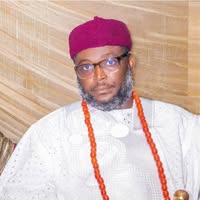…The Overwhelming Evidence Points To Leadership As Nigeria’s Fundamental Problem
As Nigeria marks its 65th year of independence, the perennial question arises: Between the leaders and the led, who truly embodies the nation’s deepest problems? While citizens often bear the brunt of blame for societal ills, a closer examination reveals that the crux of Nigeria’s stagnation lies squarely with its leadership.
From rampant corruption to a glaring lack of vision, the actions—or inactions—of those at the helm have perpetuated a cycle of poverty, decay, and underdevelopment. Despite the country’s abundant natural and human resources, poor governance has squandered opportunities, leaving Nigeria far behind its potential. My point of argument is that the leaders, not the led, are the primary architects of Nigeria’s failures, drawing on historical patterns and comparative insights to underscore this point.
The genesis of Nigeria’s troubles can be traced directly to the unethical practices of its leaders, particularly the widespread embezzlement of public funds. Since independence in 1960, successive administrations have treated the nation’s treasury as a personal piggy bank, diverting billions meant for public welfare into private coffers. This kleptocracy has not only eroded trust in government but has also exacerbated socioeconomic disparities.
The consequences are evident in the skyrocketing levels of poverty that afflict millions of Nigerians. According to various reports, over half the population lives below the poverty line, a stark contrast to the wealth generated from oil, minerals, and agriculture.
This theft of resources has led to infrastructure decay, with roads crumbling, hospitals under-equipped, and power grids unreliable, further stifling economic growth. Massive unemployment, especially among the youth, compounds the issue, fostering frustration and social inequality. In essence, the leaders’ greed has created a vicious cycle where the led are left to suffer the fallout, unable to thrive in a system rigged against them.
Compounding this is the pervasive poor leadership and absence of focused governance that has defined Nigeria’s post-independence era. At 65 years old, the nation should be a beacon of progress in Africa, given its vast endowments—oil reserves, fertile lands, and a vibrant, educated populace. Yet, it remains bedeviled by insecurity, economic instability, and institutional rot.
Leaders have often prioritized personal aggrandizement over national development, lacking the strategic vision to harness resources effectively. Policies are inconsistently implemented, reforms are half-hearted, and accountability is virtually nonexistent. This lack of direction explains why Nigeria lags behind peers like South Korea or Singapore, which, despite fewer natural advantages, transformed through purposeful leadership.
In these successful nations, progress began with ethical, forward-thinking leaders who invested in education, infrastructure, and innovation. Nigeria’s story could have mirrored theirs, but instead, it serves as a cautionary tale of what happens when leadership fails to rise to the occasion.
A global perspective further illuminates the pivotal role of leadership in national success. Examine any country that has “gotten it right,” and the pattern is clear: Righteous and competent leadership precedes prosperity. For instance, post-colonial leaders in countries like Botswana focused on transparent governance and resource management, turning diamond wealth into broad-based development. In contrast, Nigeria’s leaders have squandered similar opportunities, leading to what economists term the “resource curse.”
The led—the ordinary Nigerians—have demonstrated resilience and ingenuity, from thriving diaspora communities to local entrepreneurs innovating amid adversity. If leadership had been right from the outset, Nigeria and its people could have been far better positioned today: a middle-income economy with world-class infrastructure, low unemployment, and reduced inequality. The fact that citizens continue to excel individually, despite systemic barriers, shifts the blame away from them and onto those who hold power.
While the led are not entirely blameless—issues like voter apathy or communal divisions play a role—the overwhelming evidence points to leadership as Nigeria’s fundamental problem. The stealing of public funds, coupled with a lack of focused governance, has entrenched poverty, decay, and unemployment, preventing the nation from realizing its immense potential. As Nigeria turns 64, it is imperative for leaders to embrace accountability and vision, emulating global success stories. Only then can the country break free from its self-inflicted chains and forge a path toward true progress. The led deserve better; it is time for the leaders to deliver.
Chief Peter Ameh
Former National Chairman, IPAC
and National Secretary, CUPP


